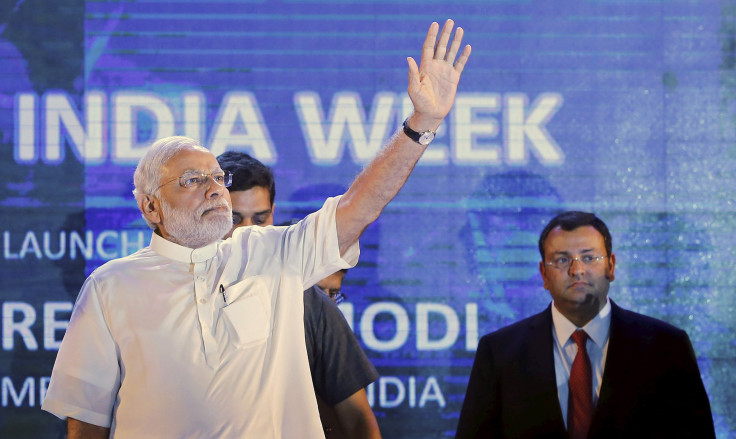India's Reliance, Bharti Lead Coalition To Invest Over $70 Billion In Digital Initiaves On Subcontinent

Reliance Industries Ltd. and Bharti Airtel Ltd. are among businesses, Indian and foreign, which have committed to investing over $70 billion in the country in the coming years -- money which will build nationwide optic fiber backbones, data centers and 4G networks to facilitate the reach of wireless services to the remotest villages in the nation of 1.25 billion people.
A back-of-the-envelop total, based on the statements made by the leaders of these companies, shows that some 4.5 trillion rupees ($70.6) will be invested in the country, creating 1.8 million jobs, Prime Minister Narendra Modi said in a speech in New Delhi, kicking off an event to promote the country’s “Digital India” program.
The umbrella program, which was announced last year, envisages that the federal government itself will spend over $15 billion in ongoing and new projects to bring broadband and mobile wireless, and last-mile connectivity to the remotest villages in the country. About 250,000 villages will eventually have some access to the Internet in the coming years under this program.
“The day isn’t far when access to government services will be in the palm of your hand, in a smartphone,” Modi said, speaking in Hindi. “M-governance doesn’t mean Modi governance, but mobile governance,” he quipped.
The broader expectation that India will grow faster in the coming years, even as China slows, has drawn investors including SoftBank Corp., Alibaba Group Holding Ltd., and Amazon.com Inc. to the subcontinent. Technology companies including Micosoft Corp., Google Inc. and Facebook Inc. are all increasing their investments in the region.
Reliance Industries will invest more than 2.5 trillion rupees across the Digital India pillars, Chairman Mukesh Ambani said at the event. “We are rolling out an all-IP (Internet protocol) next-generation wireless broadband infrastructure across all 29 states in India and this will be amongst the best in the world,” he said.
The conglomerate’s unit Reliance Jio Infocomm Ltd. is widely expected to launch nationwide 4G services later this year. Reliance Jio is also setting up a distribution network that will help 150,000 small electronics retailers to sell and service smartphones and Internet devices, Ambani said.
The company is working with leading device manufacturers “encouraging them to make in India smartphones and Internet devices at an affordable price,” giving them an assured takeup through its retail system, he said.
Sunil Bharti Mittal, Chairman of Bharti Airtel Ltd., India’s largest wireless provider, said the company will spend more than 1 trillion rupees (about $16 billion) in the next five years. This money will build deeper telecom infrastructure in urban and rural areas, “taking 4G to the masses” and collaborating with manufacturers to reduce the dependence on imports for electronics in India, he said.
The Aditya Birla Group, which includes India’s third-biggest wireless provider Idea Cellular Ltd., will invest an additional $7 billion in the next five years in areas such as network rollout and enhancement, broad implementation and wifi deployment, Chairman Kumar Mangalam Birla said.
In addition to Digital India, India’s Prime Minister Modi has championed two other broad initiatives called “make in India,” to encourage investment in hi-tech manufacturing in the country, and “skill India,” to promote vocation-based training of the country’s youth to help them get jobs across various industries.
The Digital India program should also be one that roots out corruption in the country, Modi said: “I dream of an India where government is open and governance is transparent.”
© Copyright IBTimes 2024. All rights reserved.












